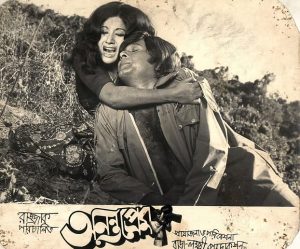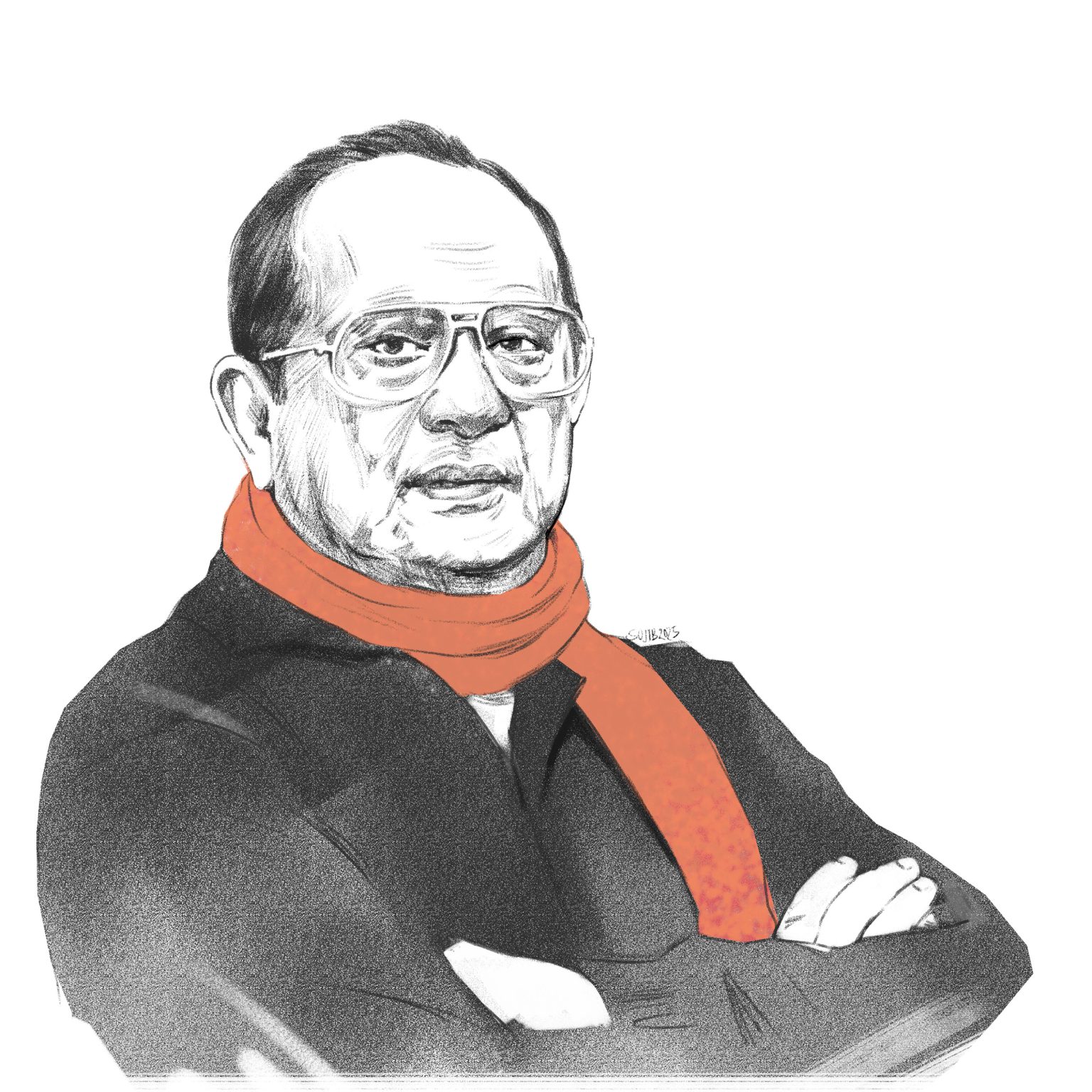If there has ever existed one person in Dhallywood who could claim to be the industry himself, it was Abdur Razzak.
Blessed with charisma, looks, acting prowess and commercial success, he was crowned ‘Nayak Raj’ (King of Heroes) by renowned journalist Ahmed Zaman Chowdhury. It was a title that defined Razzak throughout his career.
Audiences thronged cinemas for his films, while directors and producers crowded his home night after night. Not only did he shape his own stardom, but he also nurtured countless others, from filmmakers to actors.
Yet one of his most significant identities, one that of director-producer, has often been overshadowed by his larger-than-life status as a hero.
On the anniversary of his passing (August 21, 2017), it is worth revisiting this lesser-discussed side of Razzak.
Abdur Razzak was born on January 23, 1942 in Naktala, Kaliganj, Kolkata, the then-part of undivided India. Following the riots of 1964, he first moved to Bombay before eventually migrating to Dhaka via the Khulna border.
By then, he was married to Rajlakshmi (1962) and had a toddler. He was named Bapparaj. Razzak’s early years in Dhaka were marked by hardship, working as an assistant director and taking small acting roles in ‘Kajol Nouka’, ‘Kajol Bou’ and ‘13 Number Feku Ostagar Lane’. No filmmaker had approached him with lead roles yet.
His breakthrough came when the legendary Zahir Raihan cast him as a hero in ‘Behula’. The audience, still reeling from the absence of stars like Rahman (after his accident) and looking for an alternative to the Uttam–Suchitra duo, found renewed hope in the Razzak-Suchanda pair up.
The film’s flyaway success catapulted Razzak into stardom. Over the next three decades, the evergreen artist starred in more than 300 films as the industry’s leading man and eventually appearing in over 500 across the span of his career.
Unlike many contemporaries, Razzak devoted himself entirely to cinema, never treating it as a stepping stone to other ventures. Even during holidays at his Khulna garden house, he would invite directors and producers to discuss new projects. His philosophy was not just to take from the industry but also to give back.

In 1977, he directed ‘Ononto Prem, which stirred controversy after a kissing scene featuring Babita was on the screens. Despite criticism in film magazines, the movie became a box office success.
In the later days, Razzak gravitated towards original and literary-based works. He adapted Sarat Chandra Chattopadhyay’s ‘Baikunther Will’ into ‘Sat Bhai’ and ‘Santan Jakhan Satru’, Tarashankar Bandopadhyay’s ‘Chapa Dangar Bou’ and Niharranjan Gupta’s ‘Uttar Falguni’, among others.
Through his banner Rajlakshmi Productions, he directed and produced over 20 films, including acclaimed and commercially successful titles such as ‘Akankha’, ‘Badnam’, ‘Avijan’, ‘Dhaka 86’, ‘Professor’, ‘Jinner Badshah’, ‘Prem Shokti’ and ‘Baba Keno Chakar’.
Despite this impressive body of work, Razzak’s directorial and production contributions remain underexplored. His long-time collaborator, writer Chotku Ahmed, explained, “Razzaq bhai was a great director, without a doubt. But his achievements as a filmmaker could not surpass those of a hero. As a producer, he never thought about profit. Every time we discussed stories, he wanted something deeply rooted in Bengal. He never wanted anything fake.”
Film academic and producer Dr Matin Rahman echoed this sentiment, “We made him Nayak Raj Razzak, and he truly earned that title as an actor. But his filmmaking deserved greater recognition. He chose stories other producers wouldn’t dare to take on. Ones that take both courage and effort.”
Citing examples, Dr Rahman pointed to Akankha (directed by Subhash Dutt, financed by Razzak), Ononto Prem, and the bold adaptation of Tarashankar’s Chapa Dangar Bou, a psychological drama only a handful others would have dared to attempt. He also noted Avijan, a war-film centred on a ship, which he compared to the spirit later seen in ‘Hawa’.
“These works must be discussed and shared with the new generation,” Rahman added.
Razzak will always be remembered as the quintessential screen hero of Bangladeshi cinema. Yet his identity as a courageous director and visionary producer remains underappreciated. To understand his true contribution, one must look beyond the glamour of his star power to the stories he chose to tell; often risky, often profound and always with a sense of responsibility to the industry he loved.


